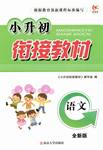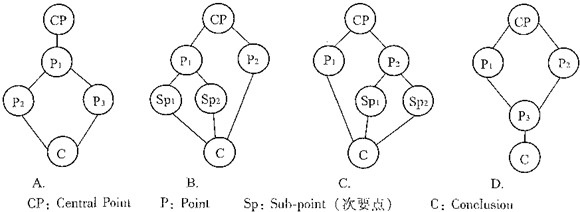题目内容
1.The State of Marriage TodayIs there something seriously wrong with marriage today?During the past 50years,the rate of divorce in the United States has exploded:almost 50%of marriages end in divorce now,and the evidence suggests it is going to get worse,if this trend continues.It will lead to the breakup of the family,according to a spokesperson for the National Family Association.Some futurists predict that in 100years,the average American will marry at least four times and extramarital affairs(婚外恋) will be even more common than they are now.
But what are the reasons for this,and is the picture really so depressing?The answer to the first question is really quite simple:marriage is no longer the necessity it once was.The practice of marriage has been based for years partly on economic need.Women used to be economically dependent on their husbands as they usually didn't have jobs outside the home.But with the rising number of women in well-paying jobs,this is no longer the case,so they don't feel that they need to stay in a failing marriage.
In answer to the second question,the prospects may not be as pessimistic as they seem.While the rate of divorce has risen,the rate of couples marrying has never actually fallen very much,so marriage is still quite popular.In addition to this,many couples now cohabit(同居) and don't bother to marry.These couples are effectively married,but they do not appear in either the marriage or divorce statistics.In fact,more than 50%of first marriages survive.The statistics are unreliable because there is a higher number of divorces in second and third marriages than in first marriages.
So is marriage really an outdated practice?The fact that most people still get married indicates that it isn't.And it is also true that married couples have a healthier life than single people:they suffer less from stress and its consequences,such as heart problems,and married men generally consider themselves more satisfied than their single counterparts.Perhaps the key is to find out what makes a successful marriage and apply it to all of our relationships!
65.What does"this is no longer the case"in paragraph two mean?C
A.It is not necessary to get married any more.
B.Women do not need a husband any longer.
C.Women are not economically dependent any more.
D.Many wives do well-paying jobs outside home now.
66.Why may the prospects of marriage not be as depressing as it appears?A
A.Many people still like to get married.
B.The rate of divorce has actually decreased.
C.many couples would rather cohabit than marry
D.The statistics of divorce is not quite true.
67.How do people usually feel in their marriage life?C
A.They are much safer. B.They feel no longer single.
C.They are more satisfied. D.They suffer a lot less.
68.Which of the following about marriage is NOT mentioned in the passage?B
A.There will be more relationships outside marriage.
B.Many people try to get married again after divorce.
C.Marriage has long been partly an economic need.
D.It is a fact that most people choose to get married.
分析 本文讲述美国现在离婚率提高,这种现象出现的原因以及影响.
解答 65--68.CACB
65 C 猜测词义题. 根据文章第二 段they don't feel that they need to stay in a failing marriage. 可知现代的女性得到了工资比较高的工作,更独立,再也没必要待在一个失败的婚姻里,故选C.
66 A 细节题.根据文章第三 段While the rate of divorce has risen,the rate of couples marrying has never actually fallen very much,so marriage is still quite popular. 可知虽然离婚率提高,但是结合率从来都没有降低,说明婚姻仍然是受欢迎的,故选A.
67 C 细节题.根据文章最后一段married men generally consider themselves more satisfied than their single counterparts. 可知结婚的男士对婚姻更满意,生活方式更健康,故选C.
68 B 细节题.通读全文可知文章并没有提到很多人离婚后想再一次结婚,故选B.
点评 做阅读理解时要快速的浏览全文,把握文章主旨大意,带着问题回到原文,寻找细节或概括相应的答案,最后要理清作者写作思路.

练习册系列答案
 学而优衔接教材南京大学出版社系列答案
学而优衔接教材南京大学出版社系列答案 小学课堂作业系列答案
小学课堂作业系列答案 金博士一点全通系列答案
金博士一点全通系列答案
相关题目
11.According to the new rules on tobacco use in Beijing which came into force on June 1,all indoor public places and many outdoor public places in Beijing ______ be 100-percent smoke-free.( )
| A. | will | B. | shall | C. | should | D. | can |
11.---Remember the first time we met?
---Sure.You _____ in the supermarket.( )
---Sure.You _____ in the supermarket.( )
| A. | shopped | B. | have shopped | C. | had shopped | D. | were shopping |
